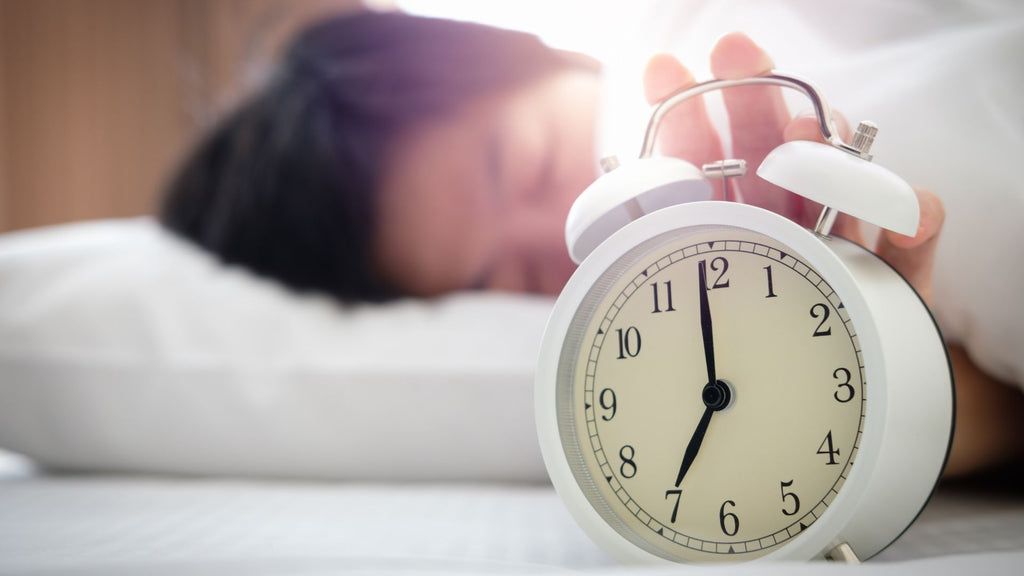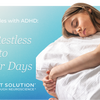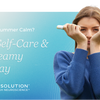7 Habits That Will Improve Your Sleep

A well-rested sleep is just as crucial as having a healthy diet and regular exercise. It can strengthen your heart, improve your immune system, enhance your productivity, improve your exercise performance, prevent weight gain, and improve your mood.
There are many advantages to getting a good night’s sleep, but the bad news is that some don’t get enough of it. For example, research says 32.6% of working adults slept six to fewer hours per night from 2017 to 2018, which is higher than those from 2008 to 2009.
And so, if you’re curious about whether you’re getting adequate sleep, one step you can take is to measure how you feel during the day. You should be prepared for the day, feel rested, and be able to function correctly—not dizzy or sleepy.
Yet, it’s time to check your sleeping habits if you have sleeping issues. However, if you’re unsure what sleeping habits to incorporate, you can read this article that will delve into that.
1. Avoid Drinking Alcohol
Alcohol is a depressant for your central nervous system, leading to slower brain activity. Alcohol can cause sedation which results in feelings of relaxation and sleepiness. However, taking alcohol—particularly in excess—has been tied to poor sleep duration and quality. Individuals with substance abuse disorders related to alcohol usually undergo symptoms of insomnia.
Regularly drinking alcohol can badly affect sleep, particularly for those who drink heavily at night. It can cause a person to have more time in the deep sleep stage and less time having Rapid Eye Movement (REM) sleep. REM sleep is a vital stage that your body needs for self-restoration. That’s why you can be restless the next day—no matter how long your sleep duration is if you have less REM sleep.
Another reason drinking too much alcohol affects sleep is that you may have to leave your bed at night to go to the bathroom so your body can eliminate the alcohol you’ve taken. However, alcohol is also a diuretic, allowing your body to lose extra fluid through sweat, leading to dehydration.
Suppose you notice that you’re addicted to alcohol and are diagnosed with a mental health issue. In that case, you can read this full post and other sources online for information regarding dual diagnosis to help you with your rehabilitation and mental health.
2. Have A Consistent Sleep Schedule
Most individuals don’t have to sleep for more than eight hours to rest well. And even so, you can sleep for at least seven hours, which is the recommended number for sleep for a healthy adult.
Likewise, it’s ideal to sleep and wake up at similar hours every day, including weekends. Having a consistent schedule strengthens your body’s sleep-wake cycle. Note that if you maintain a consistent sleep-wake schedule, you’ll have more energy compared to sleeping the same number of hours at different periods, even if you only changed the time of your sleep by an hour or more.
As setting the same time for sleep is crucial, here are some essential things to consider:
- Avoid sleeping in even on weekends: The more your weekday/weekend sleep schedules aren’t the same, the worse the jetlag-like symptoms you’ll undergo.
- Be smart about napping: If you have issues sleeping at night, napping can worsen your case. You can nap for about 15 to 20 minutes in the early afternoon and nothing more.
- Have a healthy breakfast: Eating a healthy breakfast can assist in syncing your biological clock. This is done by letting your body know it’s time to wake up and move.
3. Take Melatonin Before Sleeping
Melatonin is a bodily hormone known to have a role in managing circadian rhythms (an internal process that controls your sleep-wake cycle and repeats around every 24 hours.) Your brain’s pineal gland generates it but also exists in other bodily areas, such as your bone marrow, eyes, and gut.
Likewise, it’s usually called the sleep hormone, as having high amounts of it helps you fall asleep. Yet, melatonin itself won’t make you feel sleepy. Instead, it’ll let your body know that it’s evening so you can relax and sleep more quickly.
As melatonin is a hormone naturally created by the body, some may need to take it as a supplement. This is especially true for those who have insomnia and other sleeping disorders.
You can purchase melatonin supplements without needing any prescription in various countries, but it’s still best to seek advice from your doctor to know if you need melatonin supplements.
4. Avoid Blue Light Exposure During The Night
Light exposure during the day can be good, but night time exposure to light can make things worse. This is due to its negative impact on your circadian rhythm, deceiving your brain into thinking it’s still daytime. This limits the production of hormones such as melatonin, which is responsible for making you feel relaxed and helping you attain deep sleep.
While light can limit melatonin production, blue light exposure at night does so more distinctively. The sun amounts to most of the blue light exposure here on earth. Yet, electronic screens from tablets, televisions, smartphones, e-readers, and computers also produce artificial blue light. LED (light-emitting diode) lights and fluorescent light bulbs can also expose you to blue light.
If you want to minimize your blue light exposure, the most effective approach is to turn off sources such as your smartphones or LED lights whenever you notice it’s getting dark in the evening. Likewise, specialty glasses may also be beneficial in minimizing blue light exposure. While they may not be applicable for all, blue light blocking or amber glasses can limit the suppressing effects of bright light on your melatonin.
5. Consider Natural Sleeping Aids And Supplements
One way to get a good night’s sleep is to take natural sleeping aids and supplements. Some examples of natural aids and supplements you may consider are:
-
Valerian
Valerian plant is a plant that’s native to Asia and Europe. Its root is usually used as a natural aid for depression, anxiety, and menopause symptoms.
Likewise, Valerian has also been used to help with sleep for hundreds of years. It may raise levels of Gamma-Aminobutyric Acid (GABA), which plays a role in increasing relaxation. Valerian may be considered safe in the short term, yet sometimes it results in stomachaches and headaches.
-
Magnesium
Magnesium is a mineral that has a role in hundreds of processes in the body. It’s crucial for proper brain function and heart health. Moreover, it may help calm the mind and body, allowing you to sleep more easily.
You can get sufficient magnesium in foods such as nuts and leafy greens. Overall, seek advice from your doctor if you need this as a supplement—taking more than the necessary amount can result in nausea and cramps.
-
B Vitamins
B vitamins are crucial for having proper energy levels, brain function, and cell metabolism. It also supports your body in creating more melatonin, so it can also help with your sleep. Whole grains, seeds, nuts, meats, eggs, and dark leafy vegetables are some of the best food sources of vitamin B.
Altogether, these three are just examples, and you can use other supplements and natural sleeping aids such as Lavender, Glycine, Passionflower, Chamomile, Ginkgo Biloba, and L-Theanine for better sleep.
6. Exercise Regularly
Exercise is one of the ideal ways approved by science to help you fall asleep. One reason why it improves sleep is that it can reduce your stress and anxiety. Stress and anxiety aren’t good for your rest, so if you exercise more, you can sleep more quickly by lowering such.
Another reason it offers better sleep is that the more active you are, the more your body forces you to sleep in the evening. That means having regular activity can boost your sleep drive. But, on the other hand, don’t try an exercise routine that will leave you feeling tired and exhausted. Allowing yourself some movement during the day, such as having short walks or doing household chores, can help boost your sleep drive.
To note, those who start having at least 30 minutes of moderate aerobic exercise may see changes in sleep quality the same night. However, it usually doesn’t take months or years to notice the difference.
7. Use Stress Relieving Wearables
High levels of stress can have a major impact on your sleep. Racing thoughts can make it difficult to fall asleep or even disrupt your sleep, waking you up in the middle of the night. New technology designed to shift your nervous system out of it's stressed state (sympathetic nervous system) into the calm, rest and digest state (parasympathetic nervous system) can make a major difference in how you experience sleep. Stress relieving wearables, like TouchPoints, makes de-stressing before bedtime as easy as a push of a button.
Wrapping Up
Sleep has many health benefits. However, if you’re having some difficulty sleeping better, there are various sleep habits that you can consider.
One approach you can take is to avoid drinking alcohol regularly. It causes you to spend less time in the REM sleep stage, an essential stage for restoring your body. Second, you can practice having a consistent schedule for sleeping and waking up to reinforce your sleep-wake cycle. You can also take melatonin supplements, particularly if you have sleeping disorders. Lastly, exercising can help reduce stress and anxiety and boost sleep drive.
Overall, there are other sleeping habits that you can apply. So, try to add them into your lifestyle to help you undertake your daily tasks more efficiently and have better health.
Author Bio
Charles Phillips is a health wellness coach. He conducts seminars and writes blogs to guide people wanting to improve their health and well-being. In his free time, Charles enjoys camping and hiking with friends.




